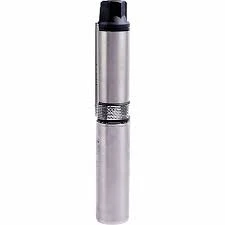Sep . 04, 2024 05:43 Back to list
3 phase water pump
Understanding 3-Phase Water Pumps Efficiency and Versatility
Water pumps play a critical role in various applications, from irrigation systems in agriculture to water supply in urban environments. Among the many types of water pumps, 3-phase water pumps stand out for their efficiency and versatility. These pumps operate on a three-phase electrical power supply, which is a common method for distributing electrical energy in industrial settings.
What is a 3-Phase Water Pump?
A 3-phase water pump is an electromechanical device that uses a three-phase electric motor to move water from one place to another. The three-phase system involves three alternating currents that are offset in time, providing a steady and balanced power supply. This design enhances the motor's performance, offering higher efficiency and more power compared to single-phase pumps.
Advantages of 3-Phase Water Pumps
One of the main advantages of a 3-phase water pump is its efficiency. With balanced power input, these pumps can handle larger volumes of water with less energy consumption. This results in lower operating costs while delivering consistent performance over time. In addition, the three-phase systems produce smoother torque, reducing motor vibrations and extending the lifespan of the pump.
Another significant benefit is the ability to run heavy-duty applications. 3-phase pumps can be designed for higher capacities, making them ideal for industrial, agricultural, and municipal water systems. These pumps are capable of moving large quantities of water quickly, which is essential for processes like irrigation, drainage, and cooling in power plants.
3 phase water pump

Applications of 3-Phase Water Pumps
3-phase water pumps find applications across various sectors. In agriculture, they are widely used for irrigation to ensure crops receive adequate water supply. In industrial settings, they play a vital role in water treatment plants, where large volumes of water need to be processed efficiently. Municipalities also utilize these pumps for maintaining water supply systems and managing stormwater.
Considerations for Choosing a 3-Phase Water Pump
When selecting a 3-phase water pump, it is essential to consider several factors. The flow rate, head height, and power requirements should align with the specific application needs. Additionally, the quality of the materials used in the pump’s construction can influence durability and maintenance needs. Proper installation and regular maintenance are also crucial to ensure optimal performance and longevity.
Conclusion
In summary, 3-phase water pumps are a vital component in numerous applications, renowned for their efficiency, reliability, and power. Their ability to sustain heavy-duty operations makes them a preferred choice in sectors such as agriculture, industry, and municipal water management. Understanding the advantages and applications of these pumps can help in making informed decisions to meet water transportation needs effectively. Investing in a 3-phase water pump not only offers a robust solution but also ensures sustainable water management practices in an ever-evolving world.
-
Submersible Water Pump: The Efficient 'Power Pioneer' of the Underwater World
NewsJul.01,2025
-
Submersible Pond Pump: The Hidden Guardian of Water Landscape Ecology
NewsJul.01,2025
-
Stainless Well Pump: A Reliable and Durable Pumping Main Force
NewsJul.01,2025
-
Stainless Steel Submersible Pump: An Efficient and Versatile Tool for Underwater Operations
NewsJul.01,2025
-
Deep Well Submersible Pump: An Efficient 'Sucker' of Groundwater Sources
NewsJul.01,2025
-
Deep Water Well Pump: An Efficient 'Sucker' of Groundwater Sources
NewsJul.01,2025
-
 Submersible Water Pump: The Efficient 'Power Pioneer' of the Underwater WorldIn the field of hydraulic equipment, the Submersible Water Pump has become the core equipment for underwater operations and water resource transportation due to its unique design and excellent performance.Detail
Submersible Water Pump: The Efficient 'Power Pioneer' of the Underwater WorldIn the field of hydraulic equipment, the Submersible Water Pump has become the core equipment for underwater operations and water resource transportation due to its unique design and excellent performance.Detail -
 Submersible Pond Pump: The Hidden Guardian of Water Landscape EcologyIn courtyard landscapes, ecological ponds, and even small-scale water conservancy projects, there is a silent yet indispensable equipment - the Submersible Pond Pump.Detail
Submersible Pond Pump: The Hidden Guardian of Water Landscape EcologyIn courtyard landscapes, ecological ponds, and even small-scale water conservancy projects, there is a silent yet indispensable equipment - the Submersible Pond Pump.Detail -
 Stainless Well Pump: A Reliable and Durable Pumping Main ForceIn the field of water resource transportation, Stainless Well Pump has become the core equipment for various pumping scenarios with its excellent performance and reliable quality.Detail
Stainless Well Pump: A Reliable and Durable Pumping Main ForceIn the field of water resource transportation, Stainless Well Pump has become the core equipment for various pumping scenarios with its excellent performance and reliable quality.Detail
